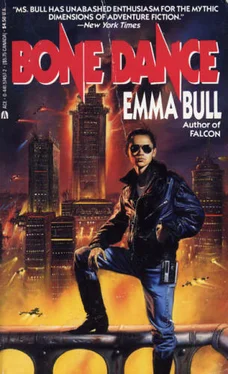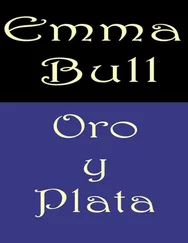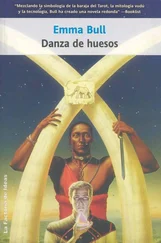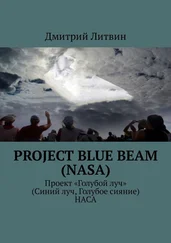The first cut opened with a sweet whine of fiddle, the tsk of a cymbal, a muttering of bass. Two women’s voices traded lyrics, as if they were telling each other a story.
Pretty Tommy Belmont was shooting up in back,
Fixing up his hair and digging through his pack.
He said, “All I want is for you to cut me a little slack.”
He never even knew what I was saying.
Angela the dancer said she never heard the shot.
Maybe she was lying, and maybe she was not.
She keeps ‘em coming in, and that keeps the party hot,
And she says there isn’t any point in praying.
Hunched in my chair, I almost laughed. So much for the sweet illogic of a sunshine past. This could have come from Here and Now, from the clean irreducibility of the Deal, from the hard surfaces of the Deeps. Two skips—I’d try another cleaning.
Then the second song began. None of the reckless flourish of the first one; this opened with a plaintive swell and ripple of guitar notes and a shivering fall of chimes. Fingers long since dust slid evocatively on strings corroded, snapped, discarded, on a guitar broken or burned or somehow lost long, long ago, and a voice slid like the fingers, hypnotic with its power of life-after-death. I’d been disarmed by that first song, cynical and safe.
Out in the light of the dark city scene
Pushin’ and shovin’ and blowing their horns
Only the pigeons are enjoying the view
The concrete is cold and the street is alive
But the only thing you hear is that voice inside
So you step off the curb…
A dead woman sang about isolation, and faced me down with mine.
We were all of us alone in our heads, Cassidy said. Living and dying alone in our unbreachable heads, our indefensible bodies.
The Jammers were mad. The Horsemen before them had breached the unbreachable, gone mad, and pressed the red button on the Tree of Knowledge of Good and Evil.
But the tarot flickered garish on Sherrea’s coffee table, thick with the major arcana, saying, The issue you have raised is largely controlled by others.
There’s something in the air tonight,
I can see it, but it’s just out of sight…
And Mick Skinner knew about the blackouts.
The disk played on in my headphones, unattended. Eventually I noticed the silence and the smell of warm circuitry. I was curled up tight in the chair; Sher’s pendant was poking me in the chest. I unfolded, painfully, and turned things off. Then I sat in the dark, thinking hard about nothing. Eventually I fell asleep in the chair.
The sun couldn’t wake me in the archives, and the chair was made to be comfortable. But it was a chair, not a bed. My knees got stiff at last from being bent, my neck got sore from being turned, the circulation slowed in my right arm, and I woke up.
I peeled a corner of the felt back from the living-room windows, squinted out, and found it midmorning. The Night Fair would be sealed, stagnant around the base of the building. I’d go back to sleep until sunset. The Night Fair in sunlight loomed as an unknown, unnatural land, and I wasn’t going to brave it today. But before I slept, I’d look in on Mick Skinner. If I was lucky, he’d have slipped away.
He hadn’t. I’d had a hopeful moment when I found the bedroom door unlocked, but he was there. His cotton jacket and a broken-down pair of boots were on the floor by the mattress. He lay on his back under my blanket, his limbs neatly arranged, staring at the ceiling.
Without blinking.
Once I’d taken a step into the room, I was sure it was true, but death is a diagnosis that can never go untested. I jabbed his shoulder. Then I felt for a pulse in his throat. There was none, and his skin had the same chill on it as the top of the dresser. But his flesh was soft, and his arm, when I lifted it, limp. Didn’t rigor mortis set in as the body cooled? Maybe he had some disease that produced this convincing catalepsy. Who would know—and how could I find them, in the Night Fair in daylight?
I began to examine him for some kind of damage. Perhaps a blow to the head? Nothing. He’d clutched at his side the night before—
Under his shirt, just to the heart side of middle, between one ridge of muscle and the next, there was a hole. Not a large one, not a fresh one, and not healed. I stared at it for a while before I rolled him over. There was a corresponding hole in his back. They were the entrance and exit wounds made by a bullet, and since they hadn’t been dressed, treated, or healed, they must have killed him.
Sometime before we’d met.
It was only a few steps from the corpse to the door; easy to do walking backward. I closed the door. Then I stumbled down the corridor and out into the building hallway. I locked my front door, methodically, watching my hands work. I went down in the freight elevator, climbed the basement stairs, and slipped out, at last, into the silent street. Somewhere in the sleeping Fair I had to find someone who could help me get rid of Mick Skinner.
Card 3.
Beneath Two of Pentodes, Reversed
Crowley : The Lord of Harmonious Change overthrown.
Gray: Inability to handle many things at once; disruptive change; harmony at the expense of change.
Waite: Enforced gaiety. Simulated enjoyment. False news.
3.0. The goddess and the girl next door
It was already as hot as it had gotten the day before, and promised to be one of the arid ones. The street smelled like scorched tar, and the sidewalk glared where the sun hit it between the building shadows. Nothing moved, not in the hard light, not in the shadow. In a thousand years, when planet-hopping archaeologists discovered the ruins of our civilization, the photos in some alien National Geographic would look like this. They’d be silent like this, too. The Dead City: remarkable state of preservation.
I was reminded of my houseguest. So I moved on, briskly.
Once I began to penetrate the heart of the Fair, I had to stop again. Hadn’t I had a nightmare like this once, before I’d been lulled into thinking that there would always be enough people?
The food vendor’s booth on my right was empty; it had been stripped down by its operator at closing, at dawn. I reminded myself of that: It had been open just hours ago. The turquoise paint on its corrugated metal sides was peeling in places, fading all over. “Mariscos” said the hand-painted letters, above a portrait of a shrimp. The word was bleached from red to pink, the shrimp to mud-green. The counter was gritty with dust. The booth had had an awning once; I saw the rusty brackets above the service pass-through. The iron barrel chained to the wall had no trash in it.
In front of me, a Ferris wheel rose against a chromakey-blue sky. Or rather, the geometric bones of the wheel were there, black against the light, thickened at the joints, flanged at regular intervals by the vertebrae of the seat buckets. The flesh for those bones was darkness and little lights and noise, and that was gone. There was rust and grit here, too. I sniffed, trying to smell alcohol or ozone, and got nothing but sun-heated metal and concrete.
It was the light, of course it was the light. When I stayed at my place in the Night Fair, I rarely went there before dawn. If I did, I went there to work, then sleep, then wake up when the Fair woke. I’d never seen the Night Fair at midmorning. But I couldn’t shake off the conviction that everything I saw had been transformed—that this was not the Ferris wheel I’d seen last night, but one a thousand years older, a thousand years broken and silent.
Читать дальше












